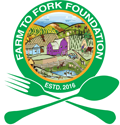Enhancing Productivity of Aromatic Winter Rice Through Boron Management
DOI:
https://doi.org/10.5455/faa.225490Keywords:
Micronutrient, Yield components, Grain yield, ProductivityAbstract
Boron (B) is one of the most important micronutrients for plants which play vital role in various metabolic process. Boron deficiency in rice has been widely reported in many rice growing regions of the world including Bangladesh. Therefore, a field experiment was carried out at the Agronomy Field Laboratory of Bangladesh Agricultural University, Bangladesh during the period from November 2022 to May 2023 to study the effect of different levels of B on aromatic Boro (winter rice) rice (cv. BRRI dhan50. The experiment comprised ten treatments viz. control (0 kg B ha-1), 2.0 kg B ha-1 (basal), 4.0 kg B ha-1 (basal), 6.0 kg B ha-1 (basal), 1.0 kg B ha-1 (basal)+ 1.0 kg B ha-1 (soil application at 30 DAT), 2.0 kg B ha-1 (basal) + 2.0 kg B ha-1 (soil application at 30 DAT), 3.0 kg B ha-1 (basal) + 3.0 kg B ha-1 (soil application at 30 DAT), 1.0 kg B ha-1 (basal) + 0.5 kg B ha-1 (soil application at 30 DAT) + 0.5 kg B ha-1 (foliar application at flag leaf stage), 2.0 kg B ha-1 (basal) + 1.0 kg B ha-1 (soil application at 30 DAT) + 1.0 kg B ha-1 (foliar application at flag leaf stage) and 3.0 kg B ha-1 (basal) + 1.5 kg B ha-1 (soil application at 30 DAT) + 1.5 kg B ha-1 (foliar application at flag leaf stage). The experiment was laid out in Randomized Complete Block Design with three replications. The yield contributing characters and yield were significantly influenced by different levels of B. The highest number of total tillers hill-1 (14.65), effective tillers hill-1 (12.75) and grains panicle-1 (106.66) were obtained from 1.0 kg B ha-1 (basal) + 0.5 kg B ha-1 (soil application at 30 DAT) + 0.5 kg B ha-1 (foliar application at flag leaf stage). The highest grain (5.38 t ha-1) and straw (6.27 t ha-1 ) yields were also obtained from the same treatment which was at par with the treatment 2.0 kg B ha-1 (basal) + 1.0 kg B ha-1 (soil application at 30 DAT) + 1.0 kg B ha-1 (foliar application at flag leaf stage) whereas the lowest values were found in control. Results indicated that 1.0 kg B ha-1 (basal) + 0.5 kg B ha-1 (soil application at 30 DAT) + 0.5 kg B ha-1 (foliar application at flag leaf stage) appears as the promising practice in terms of grain yield of aromatic Boro rice (cv. BRRI dhan50).
Downloads
Downloads
Published
How to Cite
Issue
Section
License
Copyright (c) 2024 By the Author(s)

This work is licensed under a Creative Commons Attribution-NonCommercial 4.0 International License.





















